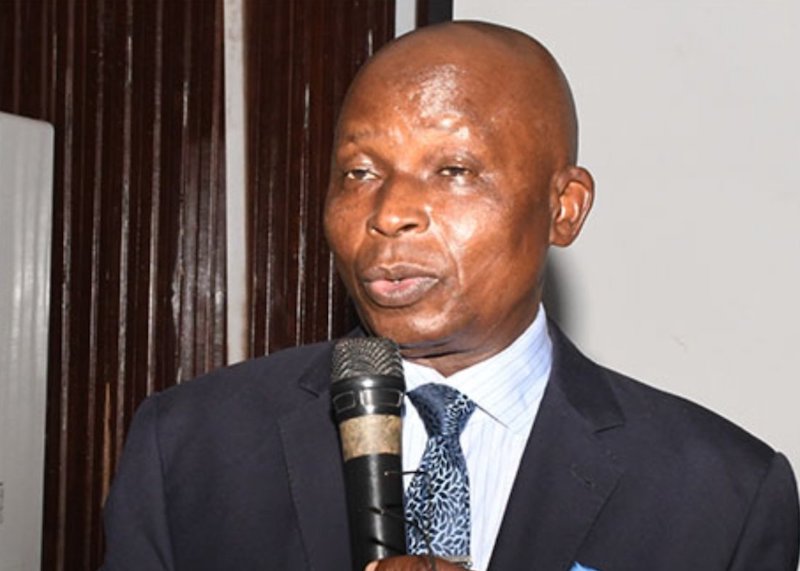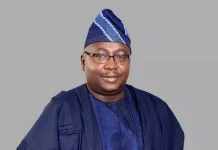The Attorney-General of the Federation (AGF) and Minister of Justice, Mr Lateef Fagbemi (SAN), advised the media to adopt ethical journalism standards to give hope to the common man.
By Adenike Ayodele
The Attorney-General of the Federation (AGF) and Minister of Justice, Mr Lateef Fagbemi (SAN), advised the media to adopt ethical journalism standards to give hope to the common man.
Fagbemi, who was represented, by Prof. Olukayode Olatoke, gave this advice on Friday at the Gavel International Annual Lecture in Ikeja.
He spoke on the theme: “The Judiciary as The Last Hope of The Common Man, Media and Legal Perspective.”
Fagbemi, in his keynote address, said the fight for a judiciary that would truly serve as the last hope of a common man, was one that both the media and the judiciary must undertake together.
According to him, the media has a crucial role to play to hold the judiciary and government accountable.
“Media should keep educating the public on their rights and amplifying the voices of the oppressed.
“Media must ensure that the scale of justice remain balanced and ensure adequate reportage of positive news.
“Regardless of the need to publicise sensational news, we must always remember that we are first of all, Nigerians.
“It must be conceded that the media is a powerful tool, as it informs, educates and entertains, but when misused, it can harm our nation’s cohesion, stability, and progress,” he said.
Fagbemi, therefore, advised that the power of the media be used to address issues constructively.
He added that the media should adopt ethical journalism standards, balance their reports and avoid clickbait headlines.”
He also said there was need for the media to invest in fact-checking, promote constructive content and engage in capacity building.
According to him, judiciary stands as a pillar of democracy and its strength is a measure of our commitment to justice and equality.
“While much has been achieved, there is still work to be done and together with the judiciary, the executive, the media and the citizens, we can build a Nigeria where every individual, regardless of status or station, can find justice, hope, and dignity.
“The media has the power to disrupt or to unite.
“Let us urge our journalists and media organisations to rise to the occasion, fostering dialogue, promoting understanding, and building a stronger, more unified Nigeria,” the AGF said.
Also, a member of the Body of Benchers, Mr Dele Adesina (SAN), submitted that the judiciary was the last hope of not only the common man, but that of the uncommon, big and small, old and young, educated or illiterate, rich or poor as well as government and the governed.
Adesina, former Pro-Chancellor and Chairman Governing Counsel, Ekiti State University, also said for every single case where justice appeared not to have been served, there were thousands of cases where justice have not only been done but have seen to be done.
He condemned violent attack on the judges and justices of the courts.
“The sustained blackmailing on the entire judicial system at the moment is wrong and same cannot help this nation or indeed anybody.
“Please understand me very well that I do not oppose constructive criticism of the judiciary, neither do I oppose clear and honest appraisal of the judiciary but the criticism of the nature and the kind we are hearing and reading about particularly in recent times are destructive and this will not help our justice system.
“It is my belief that we need to commit to self-examination that will culminate in self-realisation of our ultimate destination.
“With regards to the media and the judiciary, the golden rule of practice I submit, is that the media must not make any comment which will tend to prejudice a fair trial,” he said.
Adesina added that the media would do a greater service to Judiciary by promoting quality analysis of courts’ judgments.
“This can be done through lectures of this nature, analysis by informed men and women or through the publication of journals.
“I submit that the media must not make any comment which will tend to prejudice a fair trial.
“This is without prejudice to their duty to hold government accountable,” he said.
The Publisher of Gavel International, Mr Mustapha Ogunsakin, in his welcome address, said that the two professions that could restore the hope of the common man were the legal and media professions.
He added that the two professions were saddled with direct constitutional roles in the justice system.
Ogunsakin said while the role of the legal profession was statutory, the media had the responsibility to represent the people by covering and reporting court proceedings, except it had to do with national security or cases involving minors.
According to him, one of the ways which hope can be restored is making courts truly open, by advocating real media coverage.
He said: “I mean video recording of proceedings where the constitution permits.”
The publisher added that a country without justice would descend into chaos.
The News Agency of Nigeria (NAN) reports that dignitaries at the lecture included Lagos State Attorney-General and Commissioner of Justice, Mr Lawal Pedro (SAN), Chairman of the Occasion, Mr Gbenga Oyebode (SAN) and Mr Ebun-Olu Adegboruwa (SAN).
Others include Commissioner for Information, Mr Gbenga Omotoso, Mr Femi Falana (SAN), Chief Judge of Lagos State, Justice Kazeem Alogba, representative of the Acting-Chief Registrar, Justice Kazeem Alogba,Mr Tajudeen Elias and Mrs Maureen Chigbo, (President of GOCOP) among others. (NAN)




